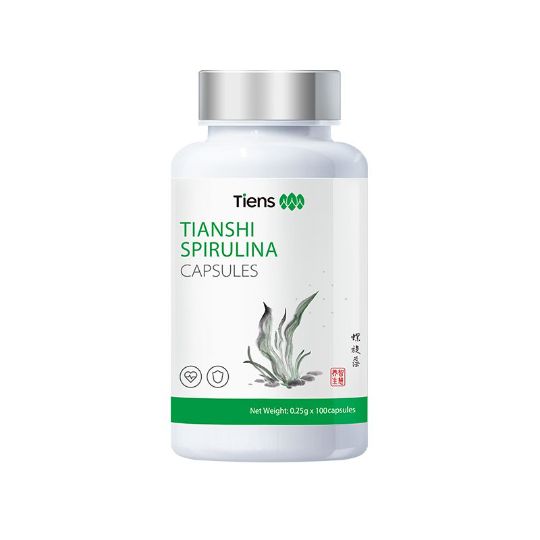
Spirulina Benefits for Skin: A Superfood for a Glowing Complexion
Spirulina Benefits for skin. Spirulina, a blue-green algae found in freshwater lakes and ponds, has become a superfood staple in the health and wellness industry. Known for its impressive nutritional profile, spirulina is rich in proteins, vitamins, minerals, and antioxidants. While it’s widely recognized for boosting energy and detoxifying the body, spirulina also offers incredible benefits for the skin. Whether you’re aiming to reduce acne, slow aging, or achieve a radiant glow, spirulina may be a natural solution worth exploring.
In this article, we’ll dive deep into the top spirulina benefits for skin, how it works, and how to incorporate it into your skincare routine.
1. Packed with Skin-Nourishing Nutrients
Spirulina is densely packed with vital nutrients that directly benefit the skin. These include:
- Vitamin A (beta-carotene): Promotes healthy skin cell turnover.
- Vitamin E: Acts as an antioxidant, protecting skin from oxidative stress.
- Iron: Supports oxygenation of skin cells.
- Gamma-linolenic acid (GLA): An essential fatty acid that maintains skin moisture and elasticity.
- Chlorophyll: Detoxifies the skin and reduces inflammation.
The nutrient density in spirulina makes it a powerful supplement for anyone looking to boost skin health naturally.
2. Fights Acne and Skin Inflammation
One of the most popular spirulina skin benefits is its ability to combat acne. Spirulina has antibacterial and anti-inflammatory properties that help:
- Kill acne-causing bacteria like Propionibacterium acnes.
- Reduce redness and swelling associated with breakouts.
- Balance sebum production, minimizing clogged pores.
Spirulina also helps detoxify the skin by flushing out toxins that can trigger breakouts, making it a helpful natural remedy for acne-prone skin.
3. Rich in Antioxidants to Combat Aging
Spirulina is a powerhouse of antioxidants, particularly phycocyanin, a blue pigment that protects against free radicals. Free radicals cause oxidative stress, which leads to signs of premature aging such as wrinkles, fine lines, and age spots.
Regular use of spirulina, both topically and orally, helps:
- Improve skin elasticity
- Reduce the appearance of wrinkles
- Brighten dull, tired skin
- Support collagen production
This makes spirulina a valuable ingredient in anti-aging skincare routines.
4. Detoxifies and Purifies the Skin
Toxins in the environment, food, and personal care products can accumulate and cause skin problems like breakouts, inflammation, and dullness. Spirulina acts as a natural detoxifier due to its high chlorophyll content.
Here’s how it helps:
- Binds with heavy metals and toxins, helping the body eliminate them.
- Reduces oxidative stress by neutralizing pollutants and harmful chemicals.
- Improves blood flow, which enhances nutrient delivery to skin cells.
This detoxifying action contributes to a clearer, more vibrant complexion over time.
5. Evens Out Skin Tone and Reduces Pigmentation
Spirulina can help lighten dark spots and even out skin tone thanks to its rich mix of antioxidants and nutrients. It enhances cellular regeneration, which can fade blemishes and hyperpigmentation.
Topical spirulina masks and creams may gradually:
- Brighten the skin
- Reduce sun spots or age spots
- Promote an even, glowing complexion
Consistent use can result in a more uniform skin tone, particularly when paired with sun protection.
6. Hydrates and Moisturizes the Skin
Dry, flaky skin can be a result of poor hydration or damaged skin barriers. Spirulina contains essential fatty acids and proteins that nourish and hydrate the skin from within.
When used in skincare products, spirulina helps:
- Lock in moisture
- Restore the skin’s lipid barrier
- Soften rough patches
It’s suitable for dry and sensitive skin types and works well in moisturizing masks and creams.
7. Speeds Up Wound Healing
Thanks to its high protein and nutrient content, spirulina promotes faster cell regeneration and wound healing. Studies suggest that spirulina may help in the recovery of minor cuts, burns, or skin abrasions.
Its antibacterial properties also reduce the risk of infection, making it ideal for healing acne scars and other skin blemishes.
How to Use Spirulina for Skin Health
There are two primary ways to harness the benefits of spirulina for skin:
1. Oral Supplementation
- Spirulina powder: Mix with smoothies, juices, or water.
- Capsules or tablets: Convenient for daily use.
- Recommended dosage: 1–3 grams daily for general health and skin benefits.
2. Topical Application
- Spirulina face mask: Combine spirulina powder with honey, yogurt, or aloe vera and apply to clean skin for 15–20 minutes.
- Serums and creams: Look for products that list spirulina as a key ingredient.
- DIY scrub: Mix spirulina with oatmeal and coconut oil to create a gentle exfoliating mask.
Tip: Always do a patch test before applying new ingredients to your face to check for any allergic reactions.
Are There Any Side Effects?
Spirulina is generally safe for most people. However, consider the following precautions:
- People with autoimmune conditions should consult a doctor before use, as spirulina can stimulate the immune system.
- Only purchase spirulina from reputable brands to avoid contamination with harmful toxins or heavy metals.
- Topical use may cause irritation in those with very sensitive skin.
If you’re pregnant, breastfeeding, or on medications, consult your healthcare provider before starting a spirulina supplement.
Conclusion: Is Spirulina Good for Skin?
Absolutely. Spirulina is one of the most nutrient-dense superfoods on the planet, and its impact on skin health is impressive. From fighting acne and slowing signs of aging to detoxifying and hydrating the skin, spirulina offers a wide range of skincare benefits backed by science and tradition.
Whether you’re sipping it in a smoothie or applying it as a face mask, incorporating spirulina into your skincare routine could be the natural, holistic boost your complexion needs.
SEO Keywords to Target:
- Spirulina benefits for skin
- Spirulina for acne
- Spirulina face mask
- Spirulina skin care
- Natural remedies for glowing skin
- Anti-aging superfoods
References
- Karkos, P. D., et al. (2011). Spirulina in Clinical Practice: Evidence-Based Human Applications. Evidence-Based Complementary and Alternative Medicine, 2011, 1–4. https://doi.org/10.1093/ecam/neq071
- Belay, A., et al. (1993). Current Knowledge on Potential Health Benefits of Spirulina. Journal of Applied Phycology, 5(2), 235–241. https://doi.org/10.1007/BF02186251
- National Institutes of Health (NIH). (2021). Spirulina. National Center for Complementary and Integrative Health. Retrieved from https://www.nccih.nih.gov/health/spirulina
- PubMed Central (PMC). (2017). Role of Spirulina in Human Health. Retrieved from https://www.ncbi.nlm.nih.gov/pmc/articles/PMC5452202/
- WebMD. (2023). Health Benefits of Spirulina. Retrieved from https://www.webmd.com/vitamins/ai/ingredientmono-923/spirulina
- Healthline. (2022). 7 Science-Based Health Benefits of Spirulina. Retrieved from https://www.healthline.com/nutrition/10-proven-spirulina-benefits
- DermNet NZ. (2023). Antioxidants and Skin Aging. Retrieved from https://dermnetnz.org/topics/antioxidants-and-the-skin
- Medical News Today. (2021). Is Spirulina Good for Your Skin? Retrieved from https://www.medicalnewstoday.com/articles/spirulina-for-skin
- Journal of Cosmetic Dermatology. (2020). The Anti-Aging Effects of Natural Ingredients: A Review. Retrieved from https://onlinelibrary.wiley.com/journal/14732165
- Verywell Health. (2023). Spirulina: Benefits, Side Effects, and Uses. Retrieved from https://www.verywellhealth.com/spirulina-benefits-side-effects-uses-4587912




